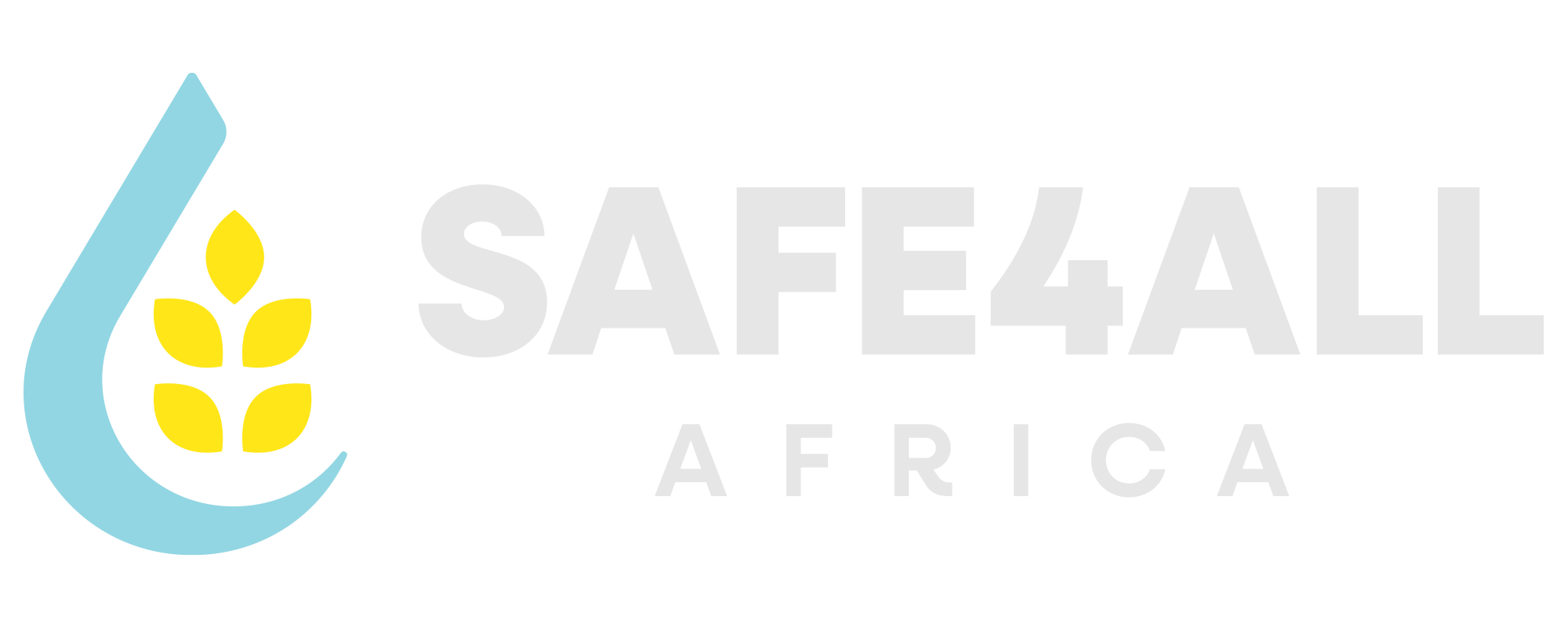The Academic and Research Backbone of SAFE4ALL
February 11, 2025
The SAFE4ALL project brings together a diverse consortium of institutions, including academic, governmental, industry, and civil society partners, to develop innovative climate services for resilience. This article introduces the academic and research institutions that play a crucial role in the project consortium.

Academic and research institutions are vital to SAFE4ALL because they provide the scientific foundation needed to understand climate risks, develop innovative tools, and translate research into practical solutions. Their expertise in climate science, agriculture, water management, and sustainability ensures that project outcomes are evidence-based and effective. By fostering collaboration between researchers, policymakers, and local communities, these institutions help bridge the gap between science and real-world applications, making climate adaptation strategies more accessible and impactful.
Wageningen University & Research – Leading SAFE4ALL as Project Coordinator
Wageningen University & Research (WUR) is a globally recognized institution known for its focus on healthy food and living environments. Its research addresses pressing global challenges, including food security, biodiversity, and environmental sustainability, with the overarching goal of improving the quality of life worldwide.
Within WUR, the Earth Systems and Global Change (ESC) Group conducts interdisciplinary research to understand the complex interactions within Earth’s systems, emphasizing sustainable solutions for climate change, resource management, and ecosystem resilience.
As the coordinator of the SAFE4ALL project, the ESC group at WUR is responsible for uniting and leading a diverse consortium of European and African partners. Its role includes ensuring the seamless integration of research, resources, and stakeholder input, aligning all project activities with the mission of providing practical, user-centered climate services. The group oversees project governance, monitors the progress of all work packages, and facilitates the co-creation process among teams in Kenya, Ghana, and Zimbabwe.
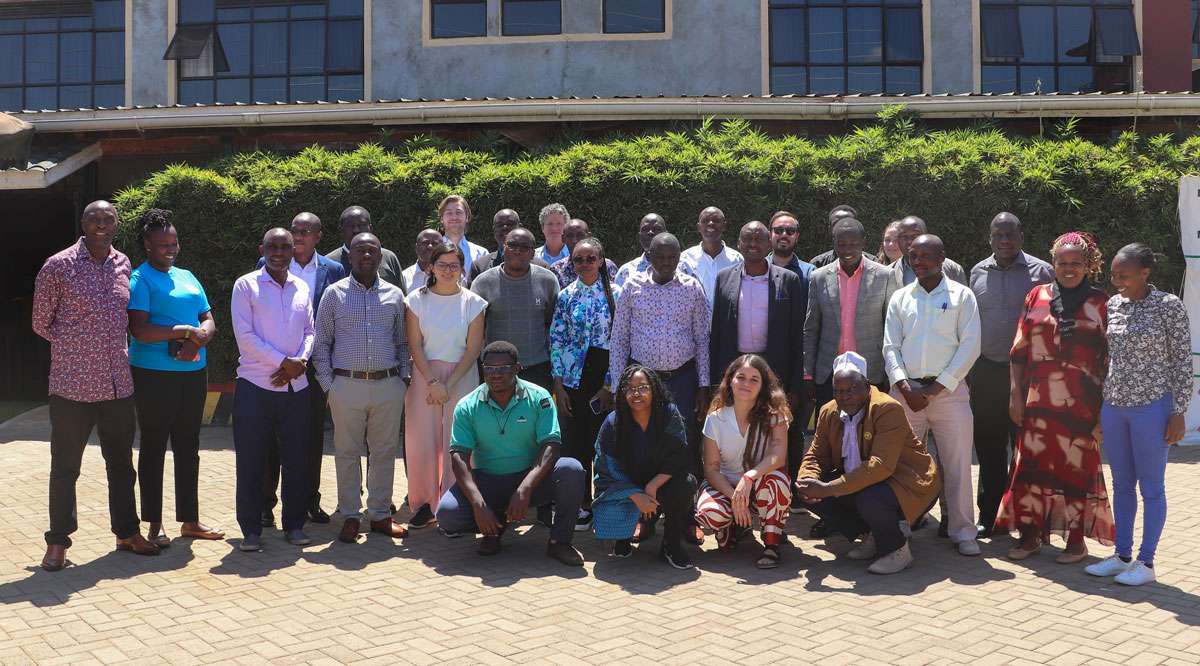
Additionally, ESC supports partners in developing scalable, affordable solutions to climate-related challenges, contributing to the resilience of small-scale farming communities, municipalities, and cities. By fostering collaboration and innovation, the group plays a key role in translating scientific insights into actionable tools and services that empower communities in Sub-Saharan Africa to adapt to climate impacts and enhance food security.
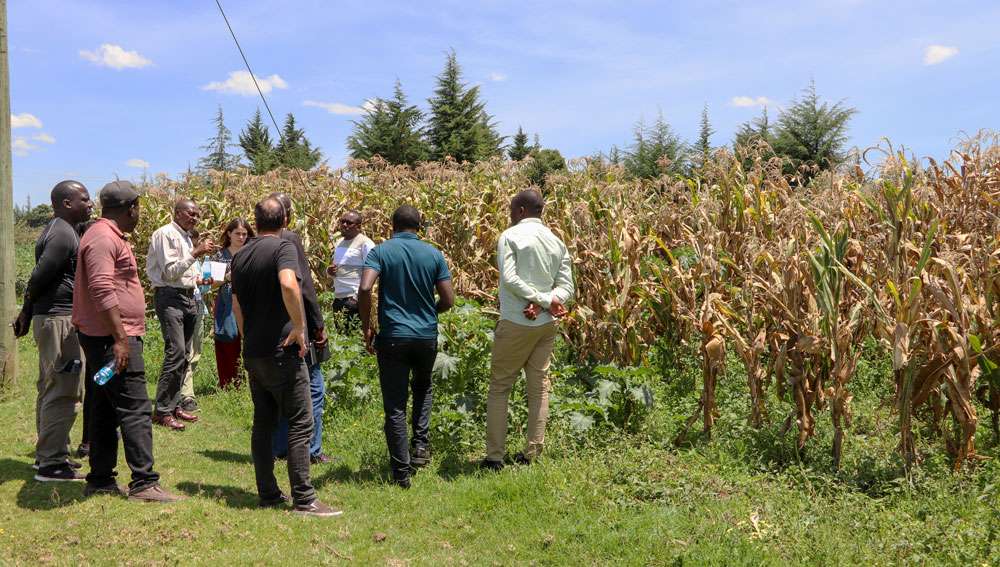
Delft University of Technology – Advancing Water Science and Co-Creation in LivingLabs
Delft University of Technology (TUD) is renowned for its water science and, specifically, for its pioneering work in new in situ measurements, and linking these through advanced data assimilation techniques to models and satellite measurements. The Department of Water Management has long-standing cooperation with partners in Africa on topics like safe drinking water, reservoir management, flood forecasts and early warnings, irrigation advice, drought management, ecosystem analysis, and water quality assessment.


Within SAFE4ALL, TUD is responsible for Work Package 1: Co-creation in case studies (LivingLabs) and the operationalization of the eWaterCycle tool within the project. As such, TUD will be involved in needs assessments in the LivingLabs as well as providing inventories, together with other consortium members, of policies and the identification of promising tools and technologies to improve climate resilience.

Jomo Kenyatta University of Agriculture and Technology – Localizing Climate Information for Kenyan Communities
Jomo Kenyatta University of Agriculture and Technology (JKUAT) is a premier public university in Kenya, recognized for its leadership in training, research, innovation, and entrepreneurship. With a strong emphasis on agriculture, engineering, technology, and health sciences, JKUAT fosters solutions to global challenges, particularly those affecting Africa. The university is deeply committed to promoting sustainable development through academic excellence and impactful partnerships.
As a key partner in the SAFE4ALL project, JKUAT plays a central role in advancing climate resilience in Kenya. Drawing on its extensive academic and research expertise, the university leads the development of localized climate information services, tailored to the needs of Kenyan farmers and communities. JKUAT contributes to designing tools and frameworks, such as the Climate Impact Atlas, to provide actionable insights into climate risks and adaptation strategies.
Additionally, JKUAT actively engages with stakeholders through workshops, co-creation case studies, and capacity-building programs. These activities ensure that the tools and services developed within SAFE4ALL are both practical and effective, addressing real-world challenges faced by smallholder farmers.
Through its involvement, JKUAT enhances the project’s impact, supporting sustainable agricultural practices, food security, and climate resilience. The university’s contributions exemplify its commitment to leveraging education and innovation for societal transformation.
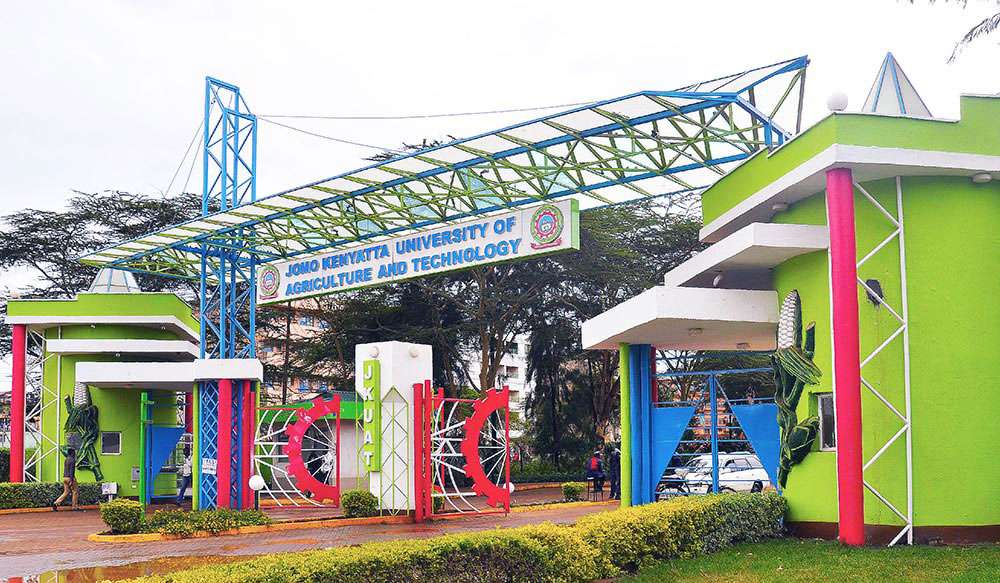
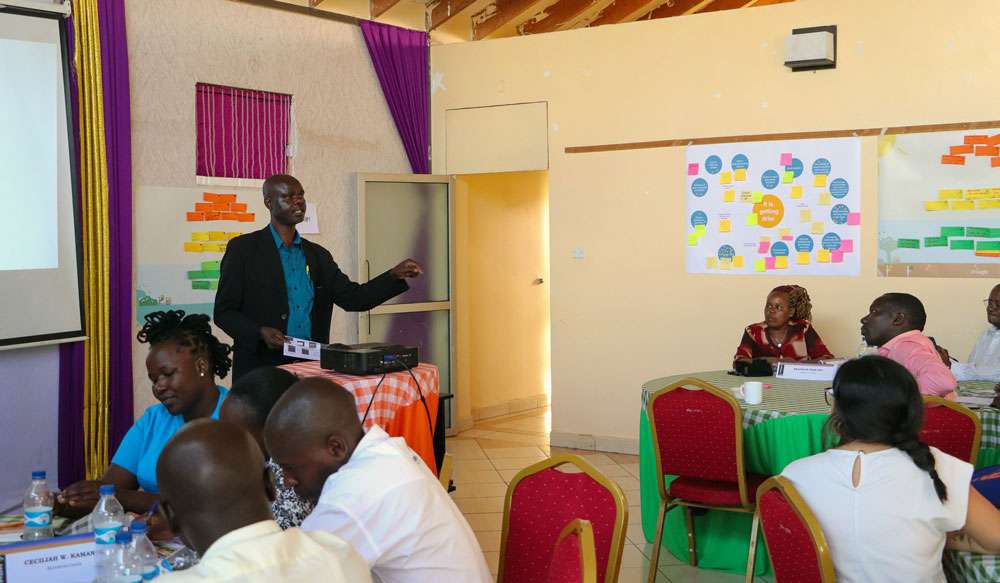
Potsdam Institute for Climate Impact Research – Providing Scientific Insights for Climate Adaptation
Advancing the scientific frontier on inter-disciplinary climate impact research for global sustainability and contributing knowledge and solutions for a safe and just climate future – this is the twofold mission of the Potsdam Institute for Climate Impact Research (PIK), a member of the Leibniz Association and a leader in its field. PIK integrates the latest understanding of the Earth system with the assessment of climate risks, and with the exploration of policies and pathways towards a manageable climate future. A guiding framework for PIK’s research is therefore the integration of Planetary Boundaries and Global Commons. The institute in a unique way combines research across disciplines and scales with solution orientation, emphasizing that societal relevance is based on scientific excellence.
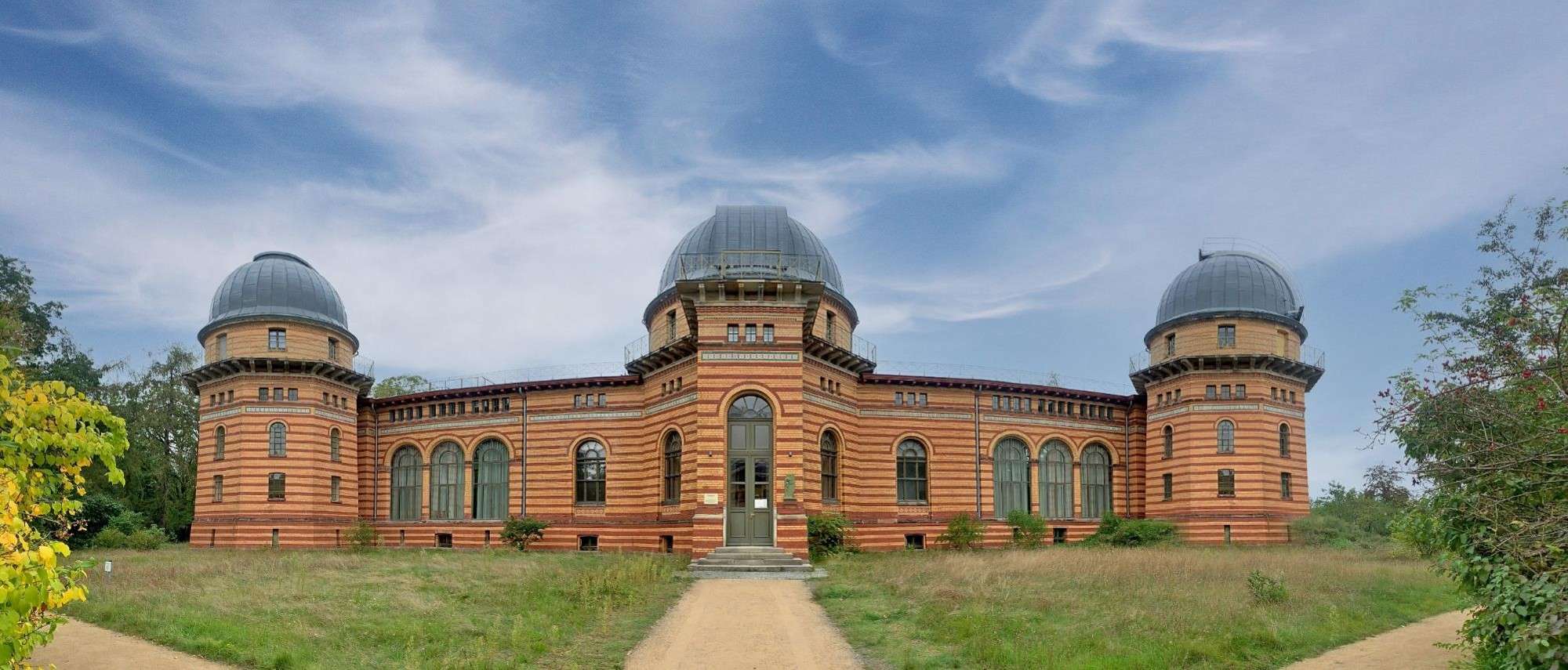
With its nearly 500 staff from all over the world, PIK contributes knowledge to the global scientific community by way of publications in high-ranking peer-reviewed international journals and engagement in numerous partnerships and networks. Its main methods are integrated and complex systems analysis and data integration; numerical simulations are run on our own supercomputer. The institute also actively provides insights to decision-makers in policy, business, and society as a whole. This is science – for a safe tomorrow.
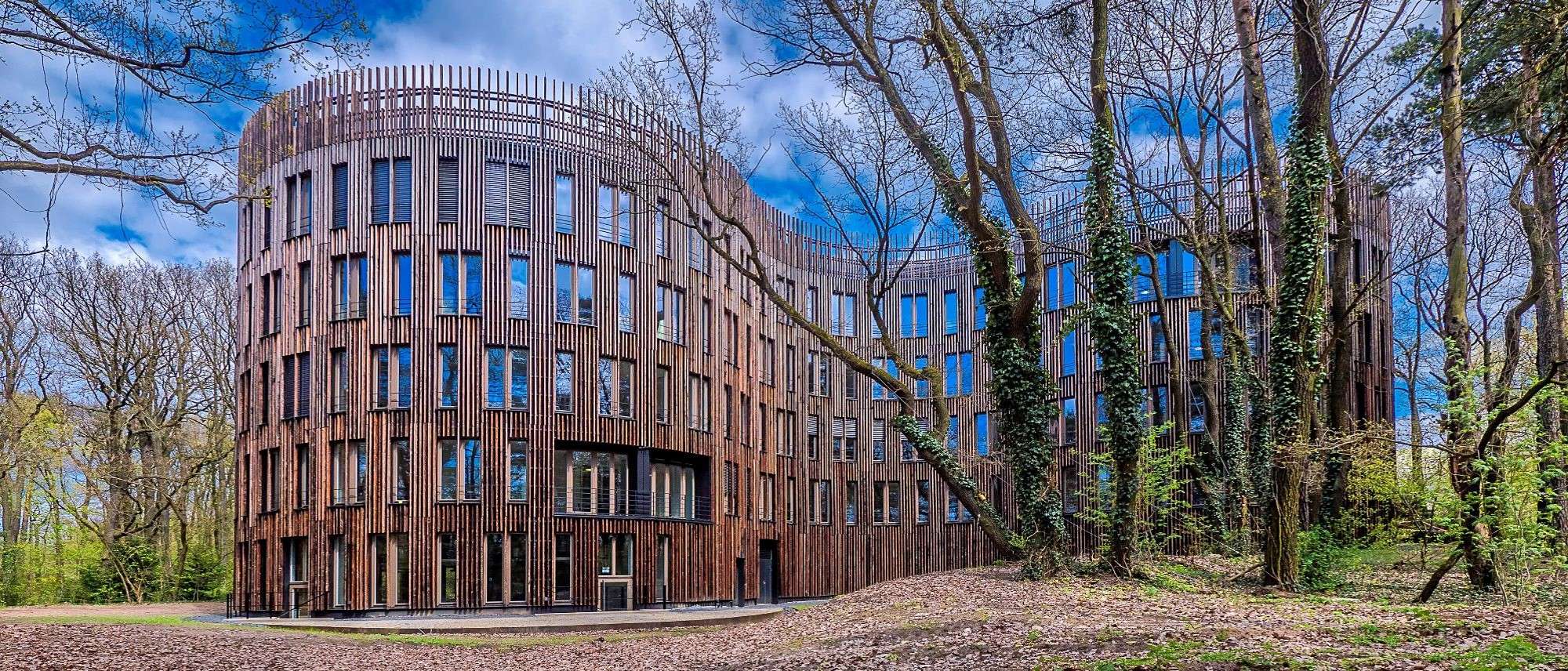
Within the SAFE4ALL project, PIK plays a pivotal role in advancing innovative climate services tailored to local adaptation needs. It focuses on harmonizing climate data and developing cutting-edge tools that bridge the gap between climate science and decision-making. By providing actionable insights, PIK supports communities in enhancing resilience and preparing for climate impacts.
University for Development Studies – Strengthening Climate Resilience through Water and Agriculture Research
The West African Centre for Water, Irrigation and Sustainable Agriculture (WACWISA) was founded in 2019 by the University for Development Studies (UDS) with support from the World Bank. As a semi-autonomous Centre of Excellence, WACWISA is dedicated to advancing research and graduate training in irrigation, water resources management, sustainable agriculture, climate change, and food security. Since its establishment, WACWISA has led over 24 research projects, funded by organizations such as DANIDA, the EU, NORHEAD, and the World Bank, collaborating with more than 50 research and industry partners.
WACWISA’s active projects cover various critical areas, including climate resilience, agroecological farming, environmental monitoring, and food security. Notable projects include Climate Change Resilience of Ecosystem Services (CRES), Agroecological Solutions for Resilient Farming in West Africa (CIRAWA), Water ESSENCE Africa, and the SAFE4ALL Project, which aims to manage migration by safeguarding African foodsheds and ecosystems.
The Centre also operates a 1.5-hectare research and demonstration area, equipped with solar-powered irrigation systems, including drip, sprinkler, spray tube, and furrow systems, as well as a 50,000-liter underground water storage tank. This site includes three greenhouses for research and commercial purposes, along with open field areas outfitted with an automatic weather station and soil sensors to support ongoing research and training.



Climate Adaptation Services (Netherlands)
is a leader in bridging the gap between climate science and practical solutions for a resilient future. With a focus on collaboration and innovation, CAS transforms complex climate data into accessible tools that empower decision-makers. By connecting scientists, governments, and practitioners, CAS builds the knowledge infrastructure needed to address the challenges of climate change. As a key partner in the SAFE4ALL project, CAS develops climate atlases, data-driven storytelling, and hands-on learning programs to enhance resilience at local and global levels. Their work supports communities and organizations in integrating climate adaptation into daily practices, driving sustainable impact worldwide.
